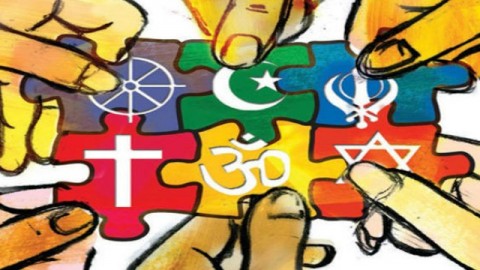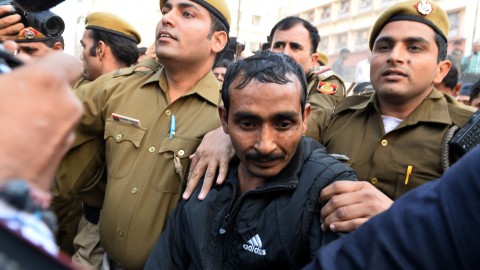‘WE WANT JUSTICE’. In every corner of every street of every town of every state is a cry for justice. Certainly, justice is on high demand. Is it followed by the supply? We can’t take recourse to economics to solve this deeply upsetting unbalancing of two forces. There is grim reality staring into our faces when a 70 year old man is acquitted of his crime after serving 38 years in jail. His predicament serves as a reminder to us that justice isn’t all about punishing the guilty, it’s also about protecting the innocent. It is one  of the foremost guarantees of the Preamble of the Constitution of India.
of the foremost guarantees of the Preamble of the Constitution of India.
India has the highest number of backlog of cases in the entire world approximating to 30 million in 2009. Disproportionate ratio of judges with respect to the population is one of the leading causes along with lack of infrastructure. But when we encounter a case like that of Bhopal where even after 20 brutally long years justice seems to be the last thing the victims will embrace, there seems to be another energy working. I am talking about the practice that has penetrated into all political spheres of functioning and has made its ground so firm that when you attempt to dislodge it, you will find yourself to be a product of the same. Yes, I am talking about the solution to all our administrative problems. It’s corruption and deep-seated political motives. It won’t come as a shock to any Indian when a politically well-connected person will be let off the hook for the most heinous of crimes owing to his status and associations. Independence of the judiciary is the basic prerequisite for a fully functioning active legal system which  imparts or seeks to impart justice to all.
imparts or seeks to impart justice to all.
Of course, all cases of delayed justice cannot be attributed to political causes and there are evident and glaring limitations and voids which accentuate the condition of backlog. A pressing need for reform in this sector is called for. We need more judges, more courts, better work schedules, practically distributed work load, efficient funds and a well planned hierarchy of judicial bodies. Also, setting a tab on the maximum amount of time required to judge a case is not impractical. Cumbersome as it may seem at first, if implemented correctly and followed properly, it can cut down on the number of backlogs quite drastically.
I believe that in order to really improve the situation, one needs to be aware of the consequences of it remaining unchanged. One has to probe at the personal level to comprehend the value of the public level debates on reformation. If we consider the Delhi gang rape, had the perpetrators not been arrested and tried in court timely (although this incident threw open  the debate on fast-track courts) they might be walking the streets freely with their hunting gaze on the lookout for their next subject. A girl lost her life being the object of their pleasure. The massive outrage generated accelerated the pace of the trial. But for cases that do not make the headlines, the disruption it causes to the affected is no less poignant. When justice is delayed to the poorest of the poor, lives are destroyed, their future is uncertain, help is unavailable to them and people die. Many die awaiting their sentence and serving jail time for something they might have not done (many are acquitted after death)! Justice is fairness. If the fair verdict comes out after they are dead and buried, what kind of justice is this? A total negation
the debate on fast-track courts) they might be walking the streets freely with their hunting gaze on the lookout for their next subject. A girl lost her life being the object of their pleasure. The massive outrage generated accelerated the pace of the trial. But for cases that do not make the headlines, the disruption it causes to the affected is no less poignant. When justice is delayed to the poorest of the poor, lives are destroyed, their future is uncertain, help is unavailable to them and people die. Many die awaiting their sentence and serving jail time for something they might have not done (many are acquitted after death)! Justice is fairness. If the fair verdict comes out after they are dead and buried, what kind of justice is this? A total negation
This is proving to be a grave crisis, a black blot on our reputed judiciary, a murdering of innocents. Justice must become a reality and not a distant dream.
Disclaimer: The opinions expressed within this article are the personal opinions of the author. Spectralhues is not responsible for the accuracy, completeness, suitability, or validity of any information on this article. The information, facts or opinions expressed in the article do not reflect the views of Spectralhues and Spectralhues does not take any responsibility or liability for the same.
Tags: delay in justice Judiciary in India Justice Justice sytem








